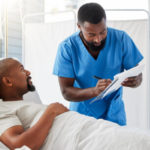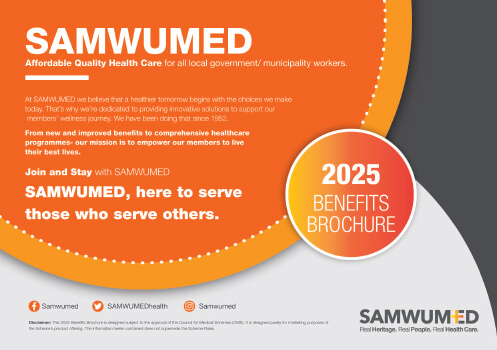The 2019 Novel Coronavirus, or 2019-nCoV, is a new respiratory virus first identified in Wuhan, Hubei Province, China.
A novel coronavirus (nCoV) is a new coronavirus that has not been previously identified. The 2019 novel coronavirus (2019-nCoV), is not that same as the coronavirus that commonly circulates among humans and cause mild illness, like the common cold.
Common signs of infection include respiratory symptoms, fever, and cough, shortness of breath and breathing difficulties. In more severe cases, infection can cause pneumonia, severe acute respiratory syndrome, kidney failure and even death (WHO).
Coronaviruses are a large family of viruses, some causing illness in people and others that circulate among animals, including camels, cats and bats. Analysis of the genetic tree of this virus is ongoing to know the specific source of the virus.
Severe Acute Respiratory Syndrome (SARS), another coronavirus that emerged and infected people, came from civet cats, while Middle East Respiratory Syndrome (MERS), another coronavirus also infected people, came from camels.
Coronaviruses are generally thought to be spread most often by respiratory droplets that are spread through sneezing and coughing.
Under the following circumstances:
- If you develop a fever and symptoms of respiratory illness, such as cough or shortness of breath
- If you have been in close contact with COVID-19 persons
- If you have visited a COVID-19 facility
- If you have travelled (even between Provinces)
So as not to place the doctor and other healthcare workers in danger, it is advisable that you should call ahead and advise of your symptoms.
Through the following:
- By staying at home if you don’t need to be outside
- By working at home if possible
- By avoiding close contact with COVID-19 positive persons
- By wearing a Mask that covers your mouth and nose at all times when in public
- By practising social distancing
- By washing your hands for 20 seconds with soap and water regularly
- By using alcohol based sanitiser to clean your hands, counter tops door knobs and other often touched places
- By avoiding crowded places
- By sanitising and cleaning all items after buying them
Through the following:
- Covering the nose and mouth with a tissue or elbow when coughing or sneezing
- By wearing a mask if you suspect that you may have the virus or if you have been diagnosed as having the virus
- By self-isolating if you suspect that you have the virus (as you wait for your tests)
- By self-isolating if you have tested positive
- By washing your hands thoroughly with alcohol-based hand rub (ABHR) or with soap and water
- By practicing high standards of hygiene, especially when preparing food.
- Not eating undercooked or raw meat
- By staying at home if you don’t need to be outside
- By working at home if possible
- By avoiding close contact with COVID-19 positive persons
- By wearing a Mask that covers your mouth and nose at all times when in public
- By practising social distancing
- By using alcohol based sanitiser to clean your hands, counter tops door knobs and other often touched places
- By avoiding crowded places
- By sanitising and cleaning all items after buying them
- Educating yourself and your family about the early signs of symptoms and basic precautions to be used
Through the following:
- Limiting Contact with the sick person
- Not sharing personal items with them
- Protecting yourself
- Keeping their environment clean
- Keeping your environment clean
- Monitoring yourself for symptoms
Click here for more information
SAMWUMED has a portal dedicated to COVID-19 which is updated daily. Click here
Alternatively the Department of Health has a COVID-19 website. Click here sacoronavirus.co.za
If you think you have been exposed to the COVID-19, please call the government’s 24-hour hotline on 0800 029 999 or visit https://sacoronavirus.co.za/ for more information.
South African Government StanceThe Government has taken measures to manage the spread of the virus including:
- Educational campaigns aimed at mobilising the support of the entire nation
- Introducing Lockdown Levels which restrict movements including some travel and trading of some businesses seen as high risk.
Click here for more information
The Department of Health has identified and designated specific hospitals in all provinces for the treatment of the virus should the cases be reported. They are:
| Province | Name of Hospital |
| Western Cape | – Tygerberg Hospital |
| Gauteng | – Charlotte Maxeke Academic Hospital – Steve Biko Academic Hospital – Tembisa Hospital |
| KwaZulu-Natal | – Grey’s Hospital (Pietermaritzburg) |
| Limpopo | – Polokwane Hospital |
| Mpumalanga | – Rob Ferreira in Mbombela (Nelspruit) |
| Free State | – Pelonomi Academic Hospital (Bloemfontein) |
| North West | – Klerksdorp Hospital |
| Northern Cape | – Kimberley Hospital |
| Eastern Cape | – Livingstone Hospital (Nelson Mandela Bay) |
Yes. SAMWUMED covers its members and dependents for COVID-19 as a Prescribed Minimum Benefit (PMB). Meaning that this cover is over and above your normal benefits. And it does do matter whether you are on Option A or Option B.
Our COVID-19 cover includes all consultations, tests (negative and positive), hospitalisation including all complications and rehabilitation.
For more information contact our Agents on: Website Chat and Web Voice. Click here









